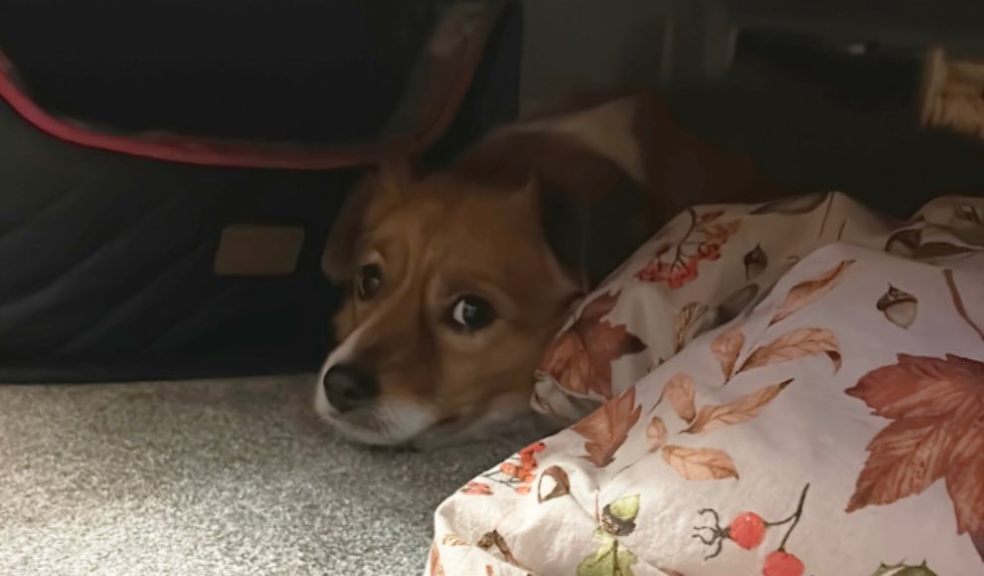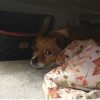
RSPCA urges public to ‘Help Quieten the Noise’ this fireworks season
The RSPCA has made an urgent plea to the public to be a ‘Kind Spark’ this fireworks season - by considering the impact of firework displays on animals and engaging in conversations with neighbours about any planned celebrations.
The call comes in the wake of two heartbreaking incidents last year, where a horse named Foxy was severely injured and a dog named Luna tragically died after fleeing her home in fear.
Recent RSPCA polling reveals that an estimated 6.16 million* households (22%) in England and Wales plan to set off fireworks this season, prompting the charity to renew its call for responsible use and community engagement.
Carrie Stones, Campaign Manager at the RSPCA said: “Thousands of animals suffer every year due to fireworks, sometimes with devastating consequences. With more than six million households set to let off fireworks this season, animals face a really tough time again.”
Despite the large number of backyard displays anticipated, RSPCA polling suggests they are a big concern for animal owners.
Carrie added: “We know 66% of pet owners say that backyard firework displays are a major concern, which highlights the levels of anxiety and worry that so many animal owners have as we approach the fireworks season - especially given how impossible it can be to know when someone is going to let off fireworks in your area.”
Despite campaigning and sharing advice every year, pets and owners are still facing the effects of terrifying fireworks every season, and sadly some result in tragic consequences.
On the Saturday before Bonfire Night in 2024, professional-grade fireworks were set off near a therapeutic riding centre, Foxfields Riding Centre in Bolton.
Clare O’Donnell, whose riding school operates within the riding centre yard, was left with a badly injured Foxy – a horse who, despite being sedated, was so scared of the fireworks she damaged her hind leg. Clare also faced a stack of veterinary bills, and a desire for change.
She said: “As an experienced horse handler, I tried to enter the stable, conscious of Foxy’s existing injuries but could not calm Foxy who was rearing up and kicking out. At this moment I felt helpless and thought of others struggling that night. I appreciate fireworks are a part of our history and culture, and don’t want to ban them – but I believe in stronger animal welfare protections and support the creation of Firework Control Zones across England and Wales to safeguard animals and minimise distress.”
In a separate tragedy during the same month, Dagmara in Greater Manchester desperately tried to comfort her seven-year-old Staffy Cross rescue dog Luna, after fireworks had been let off during daylight hours.
On November 9, Luna, startled by the noise, scaled an almost six-foot fence to escape the garden. Dagmara later received the devastating news that Luna had been hit by a train while attempting to flee, her body discovered by National Highways under Swinton Hall Bridge.
Dagmara said: “I keep replaying the incident in my mind, and my partner and I had to identify Luna. I still struggle to find the words to discuss the sadness. This could so easily have been avoided. It’s so upsetting. I wouldn’t want it to happen to another animal and their owner – yet we know it does every year. I hope that legislation does change – this is not just about animals and their owners, the issue is much broader.”
The RSPCA is urging the public to sign their petition calling for a change in legislation. The public can contact their local Member of Parliament to advocate for stronger firework laws and protect all animals—from pets and horses to livestock and wildlife. The charity's recommendations include:
• Reducing the noise level of all traditional fireworks from 120dB to 90dB.
• Limiting the sale of consumer fireworks to Category F1 and F2, and only to specialised/licensed shops.
• Designating ‘firework free zones’ in areas where fireworks are likely to have a greater impact on animals, the environment, and vulnerable people.
• Where firework-free zones are in place, local councils would be encouraged to organise their own alternative displays instead.
• Reviewing regulations surrounding alternatives to fireworks, such as drone displays, given their economic potential and benefits to wildlife and the environment.
Carrie Stones reiterated the RSPCA's call to action, adding: “We’re asking people to help us prevent this suffering and save lives by advocating for change.
“ People can take action by emailing your local council and MP to implement our recommendations, while learning how to be a firework-friendly neighbour and utilise the RSPCA’s Kind Sparks advice for pet, horse and livestock owners.
“We want to see a restriction of fireworks sales to licensed venues only, and a limit to a set number of days when people can let off fireworks, enabling animal owners to plan ahead to protect their animals. We’d also like to see the noise level of fireworks reduced by manufacturers, clearly labelled on packaging, and include a warning that the fireworks may cause huge distress to animals.”
The RSPCA offers plenty of pet fireworks advicefor animal owners looking to plan ahead to help their pets cope during the loud bangs.
The charity is also once again partnering with radio station Classic FM for the return of the much-loved programme Pet Classics, the annual radio show to help owners and pets relax during fireworks season. There will be two specially created programmes this year, on Bonfire Night, Wednesday 5 November from 5pm to 9pm, followed by a second programme on Saturday 8 November, to coincide with the busiest night for public and private fireworks displays, also from 5pm to 9pm.
In addition, in the build-up to the main Pet Classics programmes, Charlotte Hawkins is presenting a new Friday night Pet Classics mini-series from 9pm, running until Friday 31st October.

















